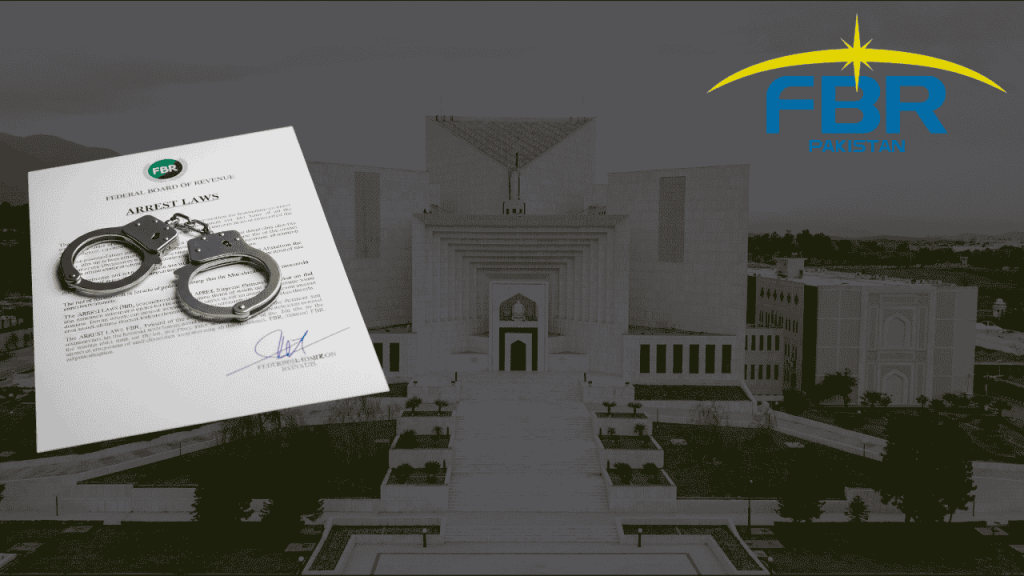Tax Arrests Require Prior Assessment: Supreme Court Declares FBR Actions Without Due Process Unlawful In a landmark ruling that strengthens taxpayer protections, the Supreme Court of Pakistan has declared that the Federal Board of Revenue (FBR) cannot arrest or initiate criminal proceedings against taxpayers without first determining their tax liability through legal procedures.
The judgment, authored by Justice Aqeel Ahmed Abbasi, emphasized that arrests, FIRs, and prosecutions without prior audit, issuance of a show-cause notice, or opportunity to respond are beyond jurisdiction and unlawful.
The ruling comes in response to a series of appeals challenging the FBR’s aggressive actions under Section 37A of the Sales Tax Act, 1990. The apex court upheld earlier decisions from the Lahore High Court, which found such actions unconstitutional and in violation of lawful authority unless preceded by assessment under Section 11 of the Act.
“Tax imposition and recovery must follow constitutional and legal processes. Any criminal action without due process infringes on fundamental rights,” the court ruled.
The case stems from criminal proceedings against 134 individuals accused of using fake sales tax invoices for illegal input tax adjustments, allegedly defrauding the exchequer of Rs7.5 billion via 144 dummy suppliers.
However, the court clarified that no assumption of liability or criminal prosecution is valid unless the FBR first completes a lawful assessment. Penal sections 33, 37A, and 37B of the Sales Tax Act cannot be invoked arbitrarily.
Justice Abbasi noted that wilful default and fraudulent intent must be proven before resorting to criminal prosecution, and due process including show-cause notices and the opportunity for the accused to respond is not optional but mandatory.
“Without prior adjudication of tax liability, criminal proceedings are not only premature but illegal,” the judgment asserted.
The Supreme Court’s decision now sets a binding precedent, curbing the FBR’s unchecked use of coercive powers and reinforcing the principle that in a democratic society, taxation must respect fundamental rights and follow the rule of law.



Comments (0)
No comments yet. Be the first to comment!
Leave a Comment